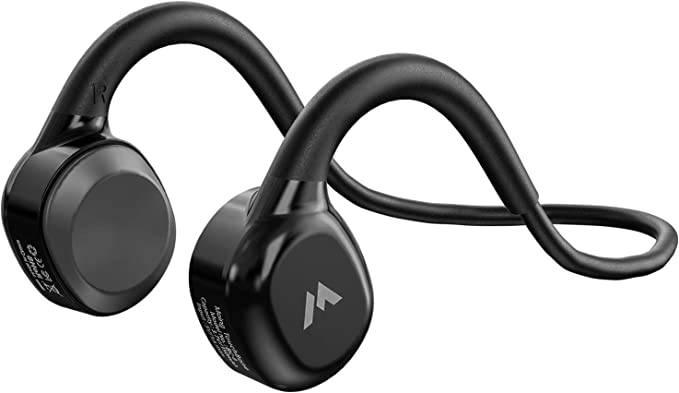The 80-Mile-An-Hour Dream: The Psychology Behind Our Thirst for Overpowered E-Bikes
Update on Oct. 19, 2025, 12:59 p.m.
The spec sheet for a modern, high-performance electric bike is a seductive document. Your eyes scan the list: a 1000-watt peak motor, a top speed of 30+ MPH, a massive battery promising an 80-mile maximum range. A rational part of your brain, the one that manages spreadsheets and grocery lists, pipes up. It calmly notes that your daily commute is only six miles, the speed limit on the bike path is 15 MPH, and you haven’t ridden more than 20 miles in a single trip in your entire life. And yet, another, more ancient part of your brain begins to whisper. “But what if…?” What if you wanted to race the wind? What if you decided to visit a friend in the next state? What if you needed to flee a zombie apocalypse? You find yourself inexplicably, powerfully drawn to this machine of immense, unnecessary capability.
This phenomenon is not an accident; it is a masterwork of marketing that taps directly into the deep, often irrational currents of human psychology. We are in the midst of an e-bike “spec war,” an arms race of watts and watt-hours that mirrors the megapixel battles of digital cameras and the gigahertz rivalries of computer processors. But to understand why we are so captivated, we must look beyond the numbers and into ourselves. This is not to say that buying a high-performance e-bike is a mistake. For some, the power is a necessity. For many others, the psychological comfort and joy it provides are valid and valuable benefits. Our goal is simply to understand the powerful, often invisible forces shaping these potent desires.

Curing the Phantom Illness: Range Anxiety and Loss Aversion
The promise of an “80-mile range” on a bike like the bluebiko F6B is marketing genius because it sells a cure to a disease most of us don’t have: terminal Range Anxiety. This term, born from the early days of electric cars, describes the fear of being stranded with a dead battery. It’s a powerful, primal fear. What’s fascinating is how this anxiety persists even when data shows the vast majority of our trips are well within the capacity of a much smaller battery.
This plays directly into a cornerstone of behavioral economics: Loss Aversion. As defined by psychologists Daniel Kahneman and Amos Tversky, loss aversion is our tendency to feel the pain of a loss about twice as strongly as the pleasure of an equivalent gain. The thought of the pain of running out of battery—the long walk home, the inconvenience, the embarrassment—is far more potent than the joy of having an extra 50 miles of unused range. The 80-mile number on the spec sheet isn’t a feature; it’s an insurance policy against a dreaded, emotionally resonant scenario. We are not buying 80 miles of utility; we are buying the profound psychological comfort of never having to even think about the last 20.
The Illusion of Power: Speed, Watts, and the Ego
So we’ve insulated ourselves from the fear of being stranded. But the psychological appeal goes far beyond simply avoiding a negative outcome. The spec sheet also sells us a potent positive feeling: the intoxicating sensation of power. A 1000-watt peak motor and a 30+ MPH top speed are numbers that speak less to practical transportation and more to our innate desire for control, freedom, and even a touch of dominance.
In a world of traffic jams and crowded public transport, where our movement is often dictated by external forces, the ability to accelerate instantly at the twist of a throttle offers a powerful illusion of agency. It’s a small, legal rebellion against the mundane constraints of the commute. This power isn’t just for climbing physical hills; it’s for climbing psychological ones. It provides a feeling of capability and strength, a brief transformation from a passive commuter into a dynamic rider. The 1000-watt number is less about utility and more about identity. For a fleeting moment, it makes us feel faster, stronger, and freer than we were before we got on the bike.
The “Just-in-Case” Kingdom: The All-Terrain, All-Weather Fantasy
While speed and power cater to our desire for freedom on the open road, another set of features speaks to a more primal instinct: the need for security and preparedness in a chaotic world. Welcome to the “just-in-case” kingdom, populated by fat tires and front suspension.
The consumer psychology here is strikingly similar to that behind the rise of the SUV. Most SUV owners will never engage in serious off-roading, yet they purchase vehicles capable of fording streams and climbing mountains. Why? Because it provides a sense of security and readiness. The fat tires on an e-bike serve the same psychological function. The average rider may never encounter a snowy path or a sandy beach, but they purchase the capability to do so. They are buying a vehicle for the life they imagine, not just the life they have.
This is a hedge against the unknown. It’s the comfort of knowing that if you encounter a gravel path, if there’s an unexpected snowfall, if you decide to embark on a rugged adventure, your machine is ready. These all-terrain features are an extension of our survivalist instincts, a modern-day tool for a fantasized apocalypse, whether that apocalypse is a blizzard or just a poorly maintained road. We are buying preparedness, a feeling of being equipped for a world more challenging and unpredictable than our own.

Conclusion: Buying a Feeling, Not Just a Bike
Ultimately, the spec sheet is a Trojan horse. It arrives disguised as a document of pure, objective data, but inside, it carries a payload of deeply resonant emotional appeals. When we find ourselves drawn to an overpowered, over-specced electric bike, we are often responding to needs that have little to do with transportation. We are buying a remedy for anxiety, a hit of adrenaline, a dose of confidence, and an insurance policy against a future we can’t predict.
Understanding this doesn’t diminish the joy of riding a powerful e-bike. On the contrary, it enriches it. It allows us to be more honest about our motivations. Perhaps you genuinely need the power for your hilly terrain. Or perhaps, you simply love the feeling of rapid acceleration, and that joy is worth the price. By recognizing that we are often buying a feeling, not just a function, we can move from being passive consumers swayed by invisible forces to conscious choosers who understand what we truly want from our machines. And in that self-awareness, we can find a more authentic and lasting form of satisfaction.




















